European low-cost carrier Wizz Air has signed a Memorandum of Understanding with Spanish energy company Cepsa for the supply of sustainable aviation fuel from 2025, the Budapest-based airline’s third renewable fuel deal in six months. While the volume to be acquired through the latest agreement was not disclosed, the airline said the agreement would enable it to use blended SAF on flights from 14 destinations in Spain. In February, Wizz Air signed with renewable fuel company Neste for the supply of 108,000 tons of blended SAF for three years, again from 2025, for use on its European and UK flights. And late last year, it signed another MoU to acquire up to 185,000 tons of blended SAF from Vienna-based renewable fuel supplier OMV between 2023 and 2030. The deals support a commitment by Wizz Air to cut CO2 emissions by 25% per passenger kilometre by 2030 and achieve net zero carbon emissions by 2050.
The partnership with Cepsa follows a week-long trial last November in which Wizz Air joined five other airlines in using SAF to part-fuel a total of 220 flights from Seville Airport in southern Spain. The fuel was produced locally by Cepsa at its La Rábida Energy Park in Huelva, as part of its ‘Positive Motion’ strategic plan, in which it aims to become the largest producer of biofuels in Spain and Portugal by 2030. The entire process, from production to distribution of the SAF, was certified as traceable by the International Sustainability Carbon Certification system (ICCS).
Cepsa is targeting annual production capacity of 2.5 million tonnes, including 800,000 tonnes of SAF, and a commitment to producing new fuels from circular raw materials that do not compete with food, with feedstocks including recycled cooking oils and biodegradable waste from a range of industries.
“We are committed to creating solutions that make air transport more sustainable, and partnerships like the one with Wizz Air to develop SAF are absolutely fundamental in our joint decarbonisation journey with clients,” said Cepsa’s Director of Aviation, Tobi Pardo.
The SAF provided in Seville was produced from feedstock including olive pits and other plant-based waste from Spain’s olive industry. Blended product containing 4.5% SAF – more than double the EU’s 2025 target of 2% – was then provided to Wizz Air, Air Europa, Air Nostrum, Iberia Express, Ryanair and Vueling by fuel storage and distribution group Exolum, with total volumes claimed by Cepsa to be enough for 400,000 kilometres of flight by an average aircraft, 400-500 hours of flight time, or 10 circuits of the Earth, sufficient to abate more than 200 tons of CO2 emissions.
As well as in Seville, future supplies of SAF from Cepsa are intended to support Wizz Air’s flights from the Spanish destinations Alicante, Barcelona El Prat, Bilbao, Castellon, Ibiza, Madrid, Malaga, Palma de Mallorca, Santander, Valencia, Zaragoza, and Fuerteventura and Teneriffe in the Canary Islands.
“We are excited to partner with Cepsa, a renowned energy company, to establish a SAF supply chain for Wizz Air in Spain,” said Ian Malin, the airline’s EVP and Group CFO.
Through this and other SAF offtake deals, plus additional measures including data-driven efficiencies and fleet renewal, Wizz Air is targeting a 25% reduction in carbon emissions per passenger kilometre by 2030, and last year achieved its lowest annual carbon intensity of 55.2 grams per passenger kilometre, 15.4% less than in 2021. The airline is also working with SAF producers to support research into future fuel development and using its SAF commitments not just to cut emissions but to help drive up demand for low-emission product, it said.
Central to its decarbonisation programme is a major fleet investment through which Wizz Air, an all-Airbus operator, is introducing new A321neo jets, 34 of which were introduced last year. The airline has close to 180 narrowbody A320 and A321 jets, and orders for more than 300, with ‘neo’ technology planes expected to exceed half of the airline’s fleet during 2023.
In addition to its SAF commitments, Wizz Air has signed an MoU with Airbus to also explore the potential for hydrogen-powered aircraft, a high priority for the airframer, which has announced plans to introduce a new family of such aircraft into commercial service by 2035.
Late last year, Wizz Air also joined AZEA, the EU’s Alliance for Zero Emission Aviation, an organisation created to progress the commercialisation of technologies including hydrogen and electric propulsion systems. The airline will share information on the challenges and solutions associated with introducing zero-emission aircraft into the low-cost flight market, and explore how hydrogen propulsion might be applied to future Wizz Air operations.
Photo: Cepsa


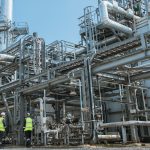
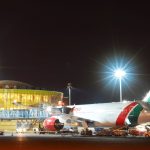
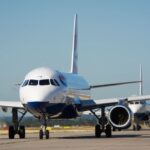
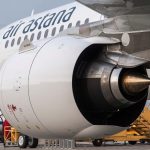

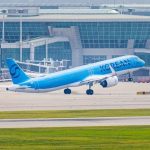



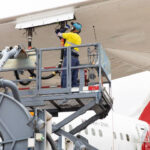


More News & Features
UK government starts new consultation on SAF revenue certainty mechanism
African Development Bank and Japanese industrialist unite to explore SAF production in Africa
LanzaJet and KMG agree to progress SAF production project in Kazakhstan
SkyNRG says e-SAF and carbon removals should not be competing strategies for aviation decarbonisation
South Korea announces mandatory SAF blending for departing international flights from 2027
Catagen launches SAF production company and signs offtakes with Ryanair and Shell